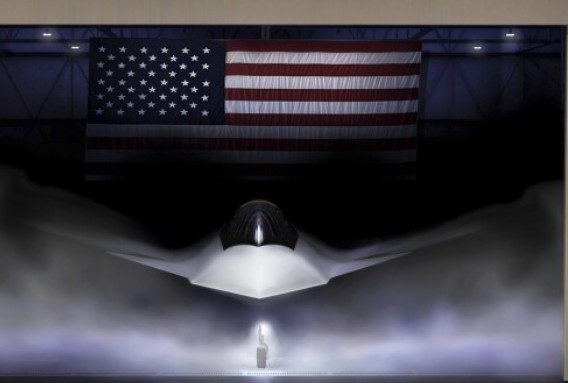Trump Awards Boeing Major Contract to Build ‘Most Lethal’ Fighter Jets Amid Diplomatic Shifts

In a groundbreaking move that underscores the U.S.’s commitment to military innovation and defense readiness, President Donald Trump has announced that aerospace giant Boeing will be awarded a major contract to develop the F-47 fighter jet a “sixth generation” aircraft that is set to become the most lethal in the U.S. arsenal. The contract is seen as a major win for Boeing and the U.S. defense industry, signaling a new era in fighter jet technology and military strength.
Alongside Defense Secretary Pete Hegseth, President Trump outlined the plans to develop the F-47, a next-generation fighter jet designed to surpass current capabilities in speed, agility, and stealth. The announcement highlights a renewed focus on enhancing U.S. military power, particularly as global tensions continue to rise.
Trump emphasized that the F-47 would be a “game-changer” in aerial combat, incorporating cutting-edge technology and state-of-the-art features that will make it a formidable tool for defense and international security. The aircraft is set to represent a significant leap from the current F-35s, offering unparalleled capabilities to outmaneuver adversaries in various combat scenarios.
The F-47: A New Chapter in Military Aviation
The F-47 fighter jet is designed to be more than just an aircraft it’s an embodiment of the future of military aviation. The new jet will incorporate artificial intelligence (AI), advanced stealth technology, and enhanced weaponry systems to ensure the U.S. maintains its technological superiority in the skies. Additionally, the F-47 will reportedly feature an autonomous flight system, reducing pilot workload while enhancing precision in combat missions.
Boeing’s role in the project is a significant one, as the company is set to build the aircraft with the latest advancements in aerodynamics, materials, and avionics. The contract is expected to create thousands of jobs within the defense sector and provide a major economic boost.
Defense Secretary Pete Hegseth praised the decision, highlighting the importance of staying ahead of rival powers like China and Russia in terms of military technology. He stated, “The F-47 will redefine what is possible in air combat. This contract ensures that we are prepared for the challenges of tomorrow, with an aircraft that will set the standard for global defense.”
Trump Teases Potential Russia-Ukraine Deal
In a surprising twist to his military announcements, President Trump also touched on his ongoing diplomatic efforts concerning the Russia-Ukraine conflict. The President suggested that an agreement between Russia and Ukraine could be closer than many had anticipated.
Trump, who has long been vocal about his willingness to broker peace deals between nations, hinted that the “confines” of a potential agreement had already been established, possibly signaling the end of a conflict that has ravaged Ukraine for years. The statement raised eyebrows, as the war has seen little progress toward a resolution despite numerous international peace efforts.
The President refrained from elaborating on the specifics of the deal but expressed confidence that Russia and Ukraine were closer than ever to reaching a diplomatic solution. He noted that several factors, including military pressure and diplomatic negotiations, have created a window for peace talks to progress.
Implications for U.S. Military Power and Global Diplomacy
The F-47 contract not only strengthens the U.S. military’s technological edge but also signals a broader shift in the U.S. defense strategy under the Trump administration. With the development of new, highly advanced weapons systems and a growing emphasis on military readiness, the U.S. seeks to assert its dominance on the global stage.
At the same time, Trump’s comments about a potential Russia-Ukraine deal reflect the administration’s evolving approach to global diplomacy. While the situation remains fluid, the U.S. President’s involvement in facilitating peace talks alongside his military and defense initiatives reveals a strategic balancing act between military might and diplomatic efforts.
As tensions continue to simmer across various global hotspots, including Eastern Europe and the Indo-Pacific region, these developments showcase the U.S. commitment to both military superiority and international peace-building.
Looking Ahead
As Boeing gears up to begin development on the F-47, anticipation is already building among military experts and defense analysts alike. The new jet promises to revolutionize aerial combat and ensure the U.S. maintains an edge in future conflicts.
In the meantime, all eyes will be on the potential breakthrough in Russia-Ukraine negotiations. Should a peace agreement come to fruition, it could drastically reshape the geopolitical landscape in Europe and signal a shift in international relations.
President Trump’s dual focus on cutting-edge military technology and diplomatic engagement sets the stage for an uncertain but potentially transformative period in U.S. foreign policy.
